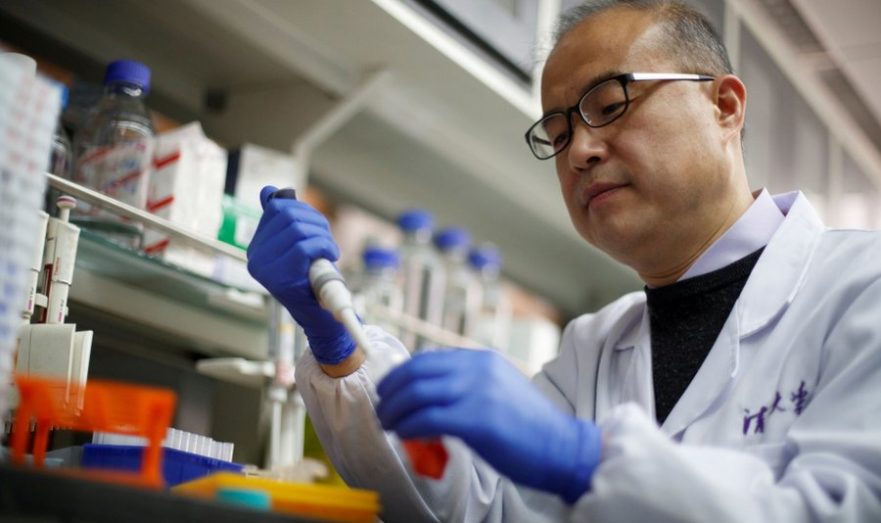The first results of experiments with these molecules were disclosed in an article in the electronic library bioRxiv.
"The images we obtained showed that the 35B5 molecule binds to the part of the coronavirus S-protein that does not actually change as SARS-CoV-2 evolves. This makes it possible to use this region not only to create antibodies, but also to develop a universal vaccine against all strains of coronavirus," the scientists write.
A group of doctors from China led by Deng Kai, a professor at Sun Yat-sen University in Guangzhou (China), found a unique antibody in a blood sample of one of the ill residents of China that equally effectively neutralizes all common strains of SARS-CoV-2.
This molecule, named 35B5, was discovered during a large-scale study aimed at studying a large number of blood samples from Chinese residents who suffered from COVID-19 in severe form. Scientists isolated cultures of B-cells producing antibodies from them and observed which viral particles they could attack.
Such searches helped doctors to identify two molecules, 35B5 and 32C7, even small concentrations of which actively neutralized particles of the first variations of SARS-CoV-2. Subsequent experiments showed that the antibody 35B5 was just as effective against the beta and delta strains of coronavirus, while the strength of the second molecule decreased sharply.
Scientists obtained similar results during experiments on mice infected with all common strains of coronavirus. The antibody 35B5 protected all rodents from death and serious lung damage, while the effectiveness of the second molecule noticeably decreased in the fight against new variations of SARS-CoV-2.
The universal nature of the action of the antibody 35B5, as shown by the photos from the cryo-electron microscope, was due to the fact that this molecule combines with that part of the S-protein of the coronavirus, which almost does not change with the evolution of SARS-CoV-2. Its structure is the same for all varieties of coronavirus, including the recently identified strain "omicron".
The same site, according to Professor Den Kai and his colleagues, can be used as a "target" for the creation of universal vaccines capable of suppressing all existing strains of coronavirus, as well as subsequent variations of SARS-CoV-2, which may occur in the coming months and years.



 Molecular biologists from China have discovered an antibody 35B5, capable of connecting to the most stable region in the structure of the coronavirus S-protein and neutralizing all its strains, including the omicron variation.
Molecular biologists from China have discovered an antibody 35B5, capable of connecting to the most stable region in the structure of the coronavirus S-protein and neutralizing all its strains, including the omicron variation.






